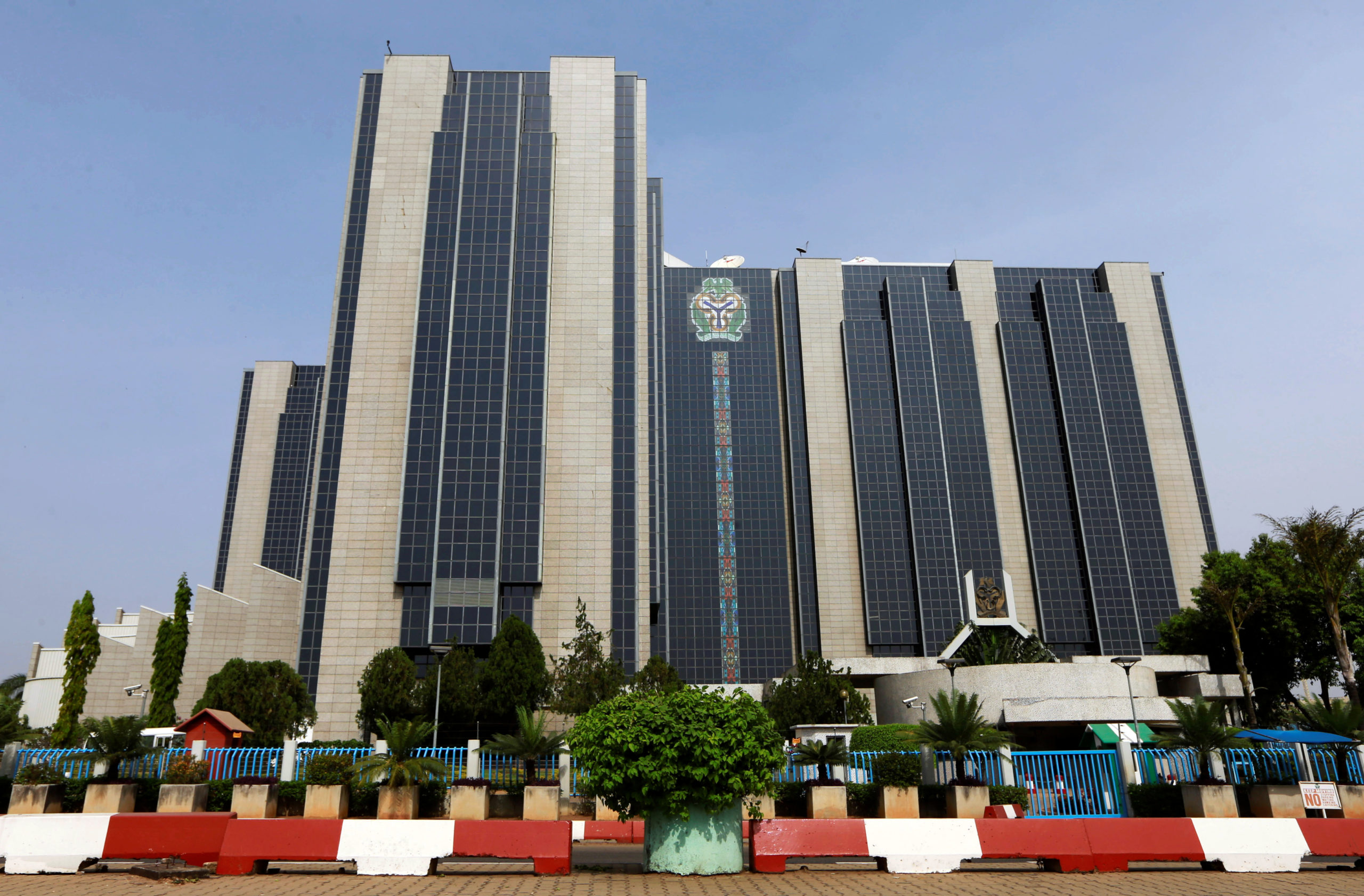Kayode Tokede narrates how Wema Bank met the N200 billion capital requirement for national banks ahead of the March 2026 deadline
The Central Bank of Nigeria (CBN) recapitalisation announcement marked yet another significant moment in the journey of banking in Nigeria. For some banks, it meant the beginning of the end. For others, it meant a fresh start. For a select few, recapitalisation came as a welcome challenge, an opportunity to yet again demonstrate resilience and pull their weight in strengthening the Nigerian banking industry.
While some banks looked into mergers and acquisitions, others took to the stock market in a quest to expand their shareholder base and by extension, capital. One commercial bank with national authorisation pulled a bold move, proceeding to raise the needed capital from its existing shareholders–a move that not only reflected its confidence in its shareholders but more importantly, the trust that these shareholders have in the Bank’s capacity for long term financial and non-financial success. This bank was Wema Bank, reputed to be Nigeria’s oldest indigenous bank, most innovative and pioneer of Africa’s first fully digital bank, ALAT.
Wema Bank’s story is no news in the scope of resilient institutions, an 80-year-old bank that started off under colonial Nigeria and rose to the top of Africa’s banking landscape at a moment where it seemed almost impossible. 3 major things defined Wema Bank’s journey: resilience, impact and innovation. Through every challenge over 8 decades, Wema Bank emerged victorious, continuing to impact Nigerian lives and businesses positively. By the 2000s, the Bank reinvented itself with a renewed drive for innovation and customer centricity, and thus began its rise to the top.
Today, Wema Bank has grown beyond banking into a systematically important institution whose legacy extends deeply across the lives and businesses of millions. The more the Bank has innovated, the better its service has gotten and the deeper the trust it has earned from its various stakeholders; customers, shareholders, employees, partners and regulators alike. It is not surprising that the Bank continues to do remarkable numbers year in year out.
Anyone with particular interest in the stock market would easily attest to Wema Bank’s stocks being one of the best performing and highly sought after stocks in the market, a feat that could easily be attributed to the Bank’s steady and exponential growth over the years. Just recently, Nigerian financial media and data intelligence company, Nairametrics, reported that Wema Bank’s shares have soared 139.56% year-to-date as of September 12, 2025, outperforming both the NGX All-Share Index (+36.55%) and the NGX Banking Index (+40%)—a rally that builds on a 171% jump in 2024 and a 47% gain in 2023, cementing the Bank’s reputation as the banking sector’s star performer.
It goes without saying, a public offer would have proven tremendously successful. However, the Bank took the unconventional route with the 2024 CBN recapitalisation exercise, raising its actual qualifying capital through a series of two Rights Issues—the first with a target of N40 billion Naira and the second with a target of N150 billion; both of which proved successful, unsurprisingly yet admirably. So how did Wema Bank meet the N200 billion capital requirement for national banks way ahead of the March 2026 deadline? Let’s take a deep dive.
Wema Bank, in its true nature as a reputed forward-thinking institution, had executed a N40 billion Rights Issue in December 2023, at least 3 months ahead of March 2024 when the Central Bank of Nigeria (CBN) announced the new recapitalisation requirement for banks. Banks with international authorisation were to raise a minimum of N500 billion in fresh capital by March 2026, national banks like Wema were given a N200 billion target and regional banks, a N50 billion target. Wema Bank marked its first step towards N200 billion in the same year, 2024, when its N40 billion Rights Issue received approvals from both the Central Bank of Nigeria (CBN) and the Securities and Exchange Commission (SEC). With N27 billion already in the bag, Wema Bank’s capital base stood at N67 billion following the approval of the first tranche of its capital raise plans.
The Bank’s capital raise efforts evidently did not stop it from pursuing other financial goals within the year 2024, as the Bank closed out the year with an all-time-high performance marked by exceptional numbers across key financial metrics including the achievement of N102.51 billion Profit Before Tax (PBT), an astounding 135.16% increase from 2023’s N43.59 billion. The Bank’s Gross Earnings grew by 91.51% from N225.75 billion in FY 2023 to N432.34 billion in FY 2024, Profit After Tax (PAT) by 140.13% to N86.29 billion from N35.93 billion reported in FY 2023 and Total Deposits by 35.65% to N2,523.82 billion in FY 2024 from N1,860.57 billion in FY 2023. Total Assets hit the N3 trillion mark, standing at N3,585.05 billion in FY 2024, a 60.04% increase from 2023’s N2,240.06billion—a remarkable feat considering the Bank surpassed the N1 trillion mark barely 5 years ago, in Q3 2021.
With numbers skyrocketing and shareholder confidence unparalleled, Wema Bank announced the second tranche of its capital raise efforts, set to be executed in two legs: an estimated N150 billion Rights Issue and a N50 billion Private Placement. On April 1st 2025, Wema Bank opened the N150 billion Rights Issue, closing out in May 2025. This Rights Issue was met with eager acceptance by the Bank’s teeming shareholder base, resulting in the Rights Issue being oversubscribed. With the capital raise now approved by both the CBN and the SEC, Wema Bank’s total qualifying capital currently stands at N217 billion naira, well above the N200 billion target stipulated for national banks. Ergo, Wema Bank successfully surpassed the N200 billion target roughly 6 months ahead of the March 31st, 2026 deadline. Surprisingly? Many would say not.
Wema Bank’s growth rate has been unrivalled, especially within the past decade. The Bank’s refocus on innovation and bullish drive for unmatched excellence has ensured that every target remains not only attained but surpassed, and this recapitalisation exercise was no different. In 2023, the Bank set its PBT target at N30 billion and attained N43.59 billion, over 45% above target. In 2024, the Bank did the unthinkable raising the stakes by placing its PBT target at N100 billion, almost three times the 2023 target. The Bank yet again met this unbelievable target, exceeding it by N2.51 billion. Now, the Bank has yet again reinforced its reputation for surpassing targets and exceeding expectations by surpassing the CBN’s N200 billion target way ahead of the deadline—a move that not only reinforces shareholder confidence but more so, cements Wema Bank’s position as a force to be reckoned with in the African financial services industry.
The story of an 80-year-old indigenous Nigerian institution changing the narrative and proving that Nigerian-owned businesses can stand the test of time, continues to reverberate across the globe, putting Nigeria on the map as the world continues to evolve rapidly. The 80th anniversary celebration of Wema Bank brought to light the Bank’s tremendous legacy of impact on lives, businesses, institutions and industries, and brought to the spotlight the Bank’s positive outlook, extreme profitability and capacity for continued success.
Just this year 2025, three of the world’s most reputable ratings agencies upgraded Wema Bank’s ratings in light of its exceptional performance and growth trends. Pan-African credit rating agency, Agusto & Co, raised the projection of Wema Bank’s outlook from Stable to Positive and upgraded Wema Bank’s credit rating from BBB+ to A-, citing improved profitability, stronger operational efficiency, a solid liquidity profile, and substantial shareholder support. American rating agency, Fitch, also upgraded the Bank’s National Long-Term Rating to ‘A-(nga)’ from ‘BBB (nga)’ while affirming its Long-Term Issuer Default Rating (IDR) at ‘B-‘. African rating agency, GCR, further upgraded Wema Bank’s National scale long and short-term issuer rating to BBB+(NG)/A2(NG) from BBB(NG)/A3(NG); with Outlook, Stable.
It goes without saying, Wema Bank is rewriting the rules and each goal attained sends a message. A message that Wema Bank is a force of transformation, built to last and equipped to sustain the remarkable growth trends that have taken it from Nigeria’s oldest indigenous bank to leading innovative bank. As Wema Bank’s N50 billion private placement awaits the necessary approvals, the Bank’s fresh capital base is projected to surpass the halfway mark towards the N500 billion mark for international banks. This ultimately begs the question, is Tier 1 in the picture for Wema Bank in the nearest future?
The post Wema Bank Surpasses CBN Recapitalisation: Testament to Resilience, Impact, Innovation appeared first on THISDAYLIVE.


